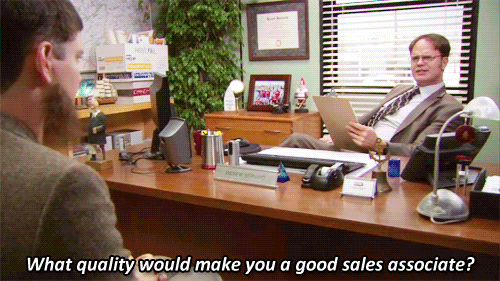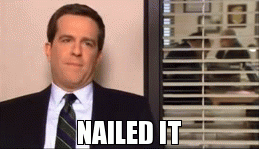7 Tips for a Successful Interview
So you sent out your resume to your potential future employer and they want to bring you in for an interview. Congrats! You thought the dirty work was done after spending hours perfecting that pristine resume, but that was just the start. Now it’s time to get down to the nitty gritty and ace that interview. Don’t worry, you won’t be pulling an all-nighter to prepare for the interview. Whether it be doing your due diligence on the company and interviewers or picking out your outfit the night before, advanced preparation is key for a successful interview. There’s no way to predict exactly how an interview will go but you can be better prepared with these interview tips.
1. CONSIDER APPEARANCES
In most companies looking smart is a given, so it’s best to think about what to wear very carefully. Some places may have a more relaxed environment, but you cannot go wrong with standard business attire to create a professional first impression. Don’t go crazy with perfume/cologne and be aware of what meals you eat prior to the interview. You don’t want the interviewer to know that you had an onion bagel for breakfast.
2. ARRIVE ON TIME
Even better, arrive 5-10 minutes early. There’s no excuse for arriving late to an interview. To avoid disaster or last minute delays, try to arrive about 10 minutes before your scheduled interview to show that you are punctual and professional. This will give you time to get settled and to calm your nerves.
3. DO YOUR RESEARCH
Know the firm you’re meeting with and be able to ask intelligent questions about its history. Be sure to research the people you’re meeting with (LinkedIn or a simple google search). You never know when you’ll have something in common with someone you’re meeting, which when discovered, makes you that much more memorable.
4. REVIEW COMMON INTERVIEW QUESTIONS
You may not be able to predict the questions that pertain specifically to the role, but you can prep with general character assessment questions. Be brief and succinct in your answers but don’t give one word answers – make your point and finish. While these questions/prompts are somewhat clichéd, they are still relevant:
Discuss some of your successes and failures and what you’d do differently.
What motivates you?
Why did you make the moves you made?
What is your greatest strength/greatest weakness?
When it’s your turn to ask the questions, ask what the firm looks for in candidates and what are some of the sought after attributes that successful candidates and employees have. It is best to ask about flexible work arrangements down the line rather than in the early interviews.
5. ARRIVE PREPARED
The day before the interview pack up extra copies of your resume, reference list, and portfolio (if necessary). Remember to pack pens and a pad of paper to take notes. Don’t forget to put your phone on do not disturb or shut it off. Silencing your phone will allow for it to vibrate which still makes a distracting noise. Also toss any unnecessary distractions, such as a coffee cup or gum, and avoid checking your watch throughout the interview.
6. HAVE A CONVERSATION AND BE YOURSELF
Be authentic, upbeat, engaged, confident, truthful, and to the point. The best interviews are a give and take, so don’t be afraid to ask questions – remember that you are interviewing the company as well. The smart job seeker asks questions as they arise throughout the interview along with prepared questions. LISTEN to the interviewer rather than thinking about what you’re going to say next.
7. THANK THE INTERVIEWERS
Taking the time to say thank you after a job interview not only is good etiquette, but also gives a positive impression. Thank your interviewers in person before you leave and then make sure to get cards and/or email addresses of those you meet so that you can follow up with a quick thank you note within 24 hours.
By adding these simple steps onto what you already do to prepare, you’ll be in great shape for a successful interview. Now go ace that interview!


